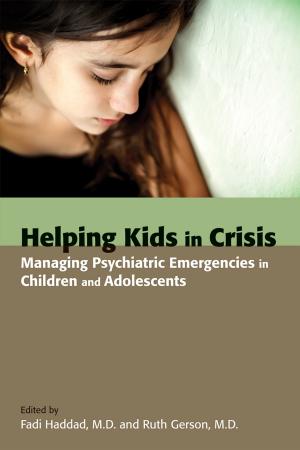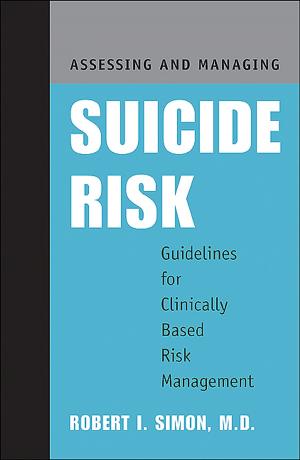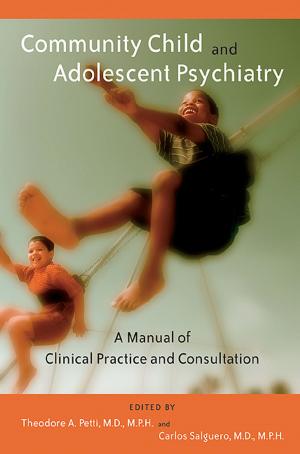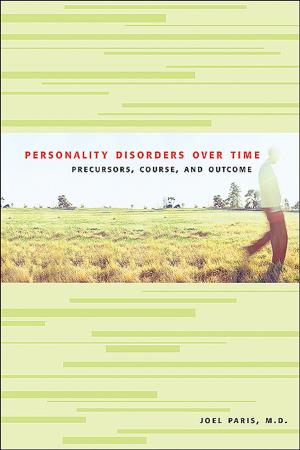Clinical Manual for the Psychiatric Interview of Children and Adolescents
Nonfiction, Health & Well Being, Psychology, Psychiatry, Medical, Specialties| Author: | Claudio Cepeda, MD, Lucille Gotanco, MD | ISBN: | 9781615371174 |
| Publisher: | American Psychiatric Publishing | Publication: | October 17, 2016 |
| Imprint: | American Psychiatric Association Publishing | Language: | English |
| Author: | Claudio Cepeda, MD, Lucille Gotanco, MD |
| ISBN: | 9781615371174 |
| Publisher: | American Psychiatric Publishing |
| Publication: | October 17, 2016 |
| Imprint: | American Psychiatric Association Publishing |
| Language: | English |
The psychiatric interview is the foundation of the psychotherapeutic process and is critically important to establish trust, elicit useful responses, assess patient behavior and psychopathology, and establish treatment goals and plans. Building on the success of its predecessor, a highly regarded guide to interviewing young patients and their families, Psychiatric Interview of Children and Adolescents, has been thoroughly updated and painstakingly revised to address emerging issues and evolving treatment strategies in an accessible, down-to-earth, and comprehensive style and structure. The book retains its comprehensive coverage of the principles of interviewing, use of the AMSIT model for mental status examinations, and evaluation of both internalizing and externalizing symptoms, as well as its coverage of neuropsychiatric assessment, psychiatric formulation, comorbidities, resistances, and countertransference. Additional features, either notable or new to this book, include: The importance of diagnostic and therapeutic engagement in establishing trust with the patient and family, and techniques for forging a positive emotional connection, which the authors view as an essential responsibility for the clinician and a linchpin of successful practice. A new chapter on the psychiatric evaluation of preschoolers and very young children, which recognizes that assessment cannot be conducted based solely on adult report, and which presents the "multiples" model: multiple sessions, multiple informants, multiple experts, multiple modes of assessment, multicultural approach, and multiaxial emphasis. Expanded coverage of bullying, including cyber bullying, which has a pervasive and potentially pernicious effect on young people steeped in social media. Recognition, both throughout the book and in a separate chapter on family assessment, that behavior problems in a child or young adult cannot be understood without the relational context of the family, and that any family member's problems are best understood as manifestations of dysfunctions within the broader family unit. Expanded coverage of the factors and issues involved in evaluating children and adolescents from special populations, including those with neurodevelopmental disorders or intellectual disabilities; those who are disadvantaged, displaced, or victims of discrimination; and those with posttraumatic stress disorder related to terrorism or burn trauma.
The book's instructional aims are enhanced by the use of carefully chosen and compellingly crafted clinical vignettes that illustrate vital concepts and techniques, and key points at the end of each chapter help the reader identify and remember the most important material. Psychiatric Interview of Children and Adolescents will help clinicians master the skills and attain the insight they require to accurately assess and effectively treat this most vulnerable of patient populations.
The psychiatric interview is the foundation of the psychotherapeutic process and is critically important to establish trust, elicit useful responses, assess patient behavior and psychopathology, and establish treatment goals and plans. Building on the success of its predecessor, a highly regarded guide to interviewing young patients and their families, Psychiatric Interview of Children and Adolescents, has been thoroughly updated and painstakingly revised to address emerging issues and evolving treatment strategies in an accessible, down-to-earth, and comprehensive style and structure. The book retains its comprehensive coverage of the principles of interviewing, use of the AMSIT model for mental status examinations, and evaluation of both internalizing and externalizing symptoms, as well as its coverage of neuropsychiatric assessment, psychiatric formulation, comorbidities, resistances, and countertransference. Additional features, either notable or new to this book, include: The importance of diagnostic and therapeutic engagement in establishing trust with the patient and family, and techniques for forging a positive emotional connection, which the authors view as an essential responsibility for the clinician and a linchpin of successful practice. A new chapter on the psychiatric evaluation of preschoolers and very young children, which recognizes that assessment cannot be conducted based solely on adult report, and which presents the "multiples" model: multiple sessions, multiple informants, multiple experts, multiple modes of assessment, multicultural approach, and multiaxial emphasis. Expanded coverage of bullying, including cyber bullying, which has a pervasive and potentially pernicious effect on young people steeped in social media. Recognition, both throughout the book and in a separate chapter on family assessment, that behavior problems in a child or young adult cannot be understood without the relational context of the family, and that any family member's problems are best understood as manifestations of dysfunctions within the broader family unit. Expanded coverage of the factors and issues involved in evaluating children and adolescents from special populations, including those with neurodevelopmental disorders or intellectual disabilities; those who are disadvantaged, displaced, or victims of discrimination; and those with posttraumatic stress disorder related to terrorism or burn trauma.
The book's instructional aims are enhanced by the use of carefully chosen and compellingly crafted clinical vignettes that illustrate vital concepts and techniques, and key points at the end of each chapter help the reader identify and remember the most important material. Psychiatric Interview of Children and Adolescents will help clinicians master the skills and attain the insight they require to accurately assess and effectively treat this most vulnerable of patient populations.















